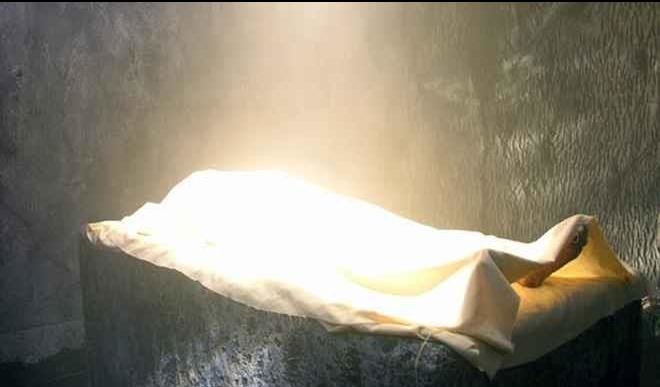Where do you wish to die?
Attend any prayer in your neighborhood and you would hear the Imam supplicate passionately to the Almighty on behalf of the congregation for more of His favours. One of the ‘prayer points’ is usually that the Almighty should protect the congregation against ‘sudden death’. You would likely hear him as he says: “Protect us O! […]


Attend any prayer in your neighborhood and you would hear the Imam supplicate passionately to the Almighty on behalf of the congregation for more of His favours. One of the ‘prayer points’ is usually that the Almighty should protect the congregation against ‘sudden death’. You would likely hear him as he says: “Protect us O! God! from accidents on the road, from death while in sleep, from …”. But we all know that each day the sun rises, it signals the birth of a child and the death of another; the rise to fame of a group and the descent of another into infamy. Since the primordial period, my dear brethren, humanity has learnt that to be born is to keep a date with death; to emerge from the womb into life is to book a space in the tomb.
“Abdullah” probably travelled to Saudi Arabia to perform the Hajj and Umra. He could have begun the spiritual journey in Makkah, before his onward journey to Madinah to visit the Prophet’s mosque. He could even have been a citizen of Saudi Arabia who enjoyed the uncommon privilege of being a neighbour to the holiest sites in Islamic weltanschauung. He entered the Prophet’s mosque that particular day like other worshippers. He took his position amidst the worshippers of the creator of the heavens and the earth; he joined the congregation in order to raise his voice and glorify the name of the Almighty. Yes, he raised his voice and said Allahu Akbar- that the Almighty is Great. He raised his two hands in an expression of his nothingness in relation to His majesty; he raised his two hands to affirm his awareness that he came to the world with nothing and that when the ‘hour’ comes he shall leave with nothing except his worship of the Almighty and the good deeds he puts forward.
After a short while he bowed his head, in the ruku’ posture, like other worshippers in the mosque. Thereafter, dear brethren, our brother proceeded from the rukuu’ to the sajdah. The sajdah posture, you would remember, is the closest station the servant can reach on this planet earth in relation to the Almighty. In the sajdah posture, dear brethren, our forehead, our two palms, our two knees and the toes of our foot (the seven points of submission to the Almighty) should touch the ground. The sajdah posture carries great lessons for our contemplation.
When the Muslim worshipper puts his forehead on the ground in obeisance and in submission to the Almighty, he practically humbles himself. By bringing our forehead to the ground, Muslims engage in willful self-immolation in front of their creator. The Muslim worshipper who brings his forehead to touch the ground enters into a covenant with the Almighty; such a Muslim is saying she would not, no matter how austere or prosperous the circumstance becomes, serve any other principal apart from His Majesty.
In the sajdah posture nests one other important lesson. When the Muslim worshipper puts his head on the ground and raises it, he brings to mind the fact that it is from the earth he was created; when he goes back to put his forehead on the ground, he becomes attentive to the reality that sooner or later he shall, at his demise, be returned back to the earth; when he raises his head from the ground once again, he is aware that no matter how long he stays in his grave or tomb, he shall be resurrected from the earth on the day of judgment: “We have created you from the earth, into it We shall return you and from it We shall bring you back to life once again (Quran 20: 55).
Thus, after a long while during which he remained transfixed on the same spot, his forehead firmly glued to the ground, his hands spread out as if they had become wings like that of the bird in space, his fellow worshippers became aware that their brother had departed this world. He had died while in Salat, in prostration to the Almighty, in the hallowed space of the Prophets mosque in Madinah!!!
In Surat Luqman, verse thirty-four, the Almighty reminds us that the knowledge of five entities in our world has not and will never be given to anybody: the knowledge of the “hour”- the hour in which you and I will depart this world, the hour in which resurrection will take place… All these realities are firmly under the control of the Almighty.
Compare the destiny of that man who died in his prayers with that other ‘big’ man who died in a hotel while engaging in illicit sexual relations with an harlot? Who between the two stands a chance of enjoying eternal redemption? Ask yourself this question: whenever the Almighty ‘knocks on your door’, would you be able to say: ‘come in, the door is not locked”?
